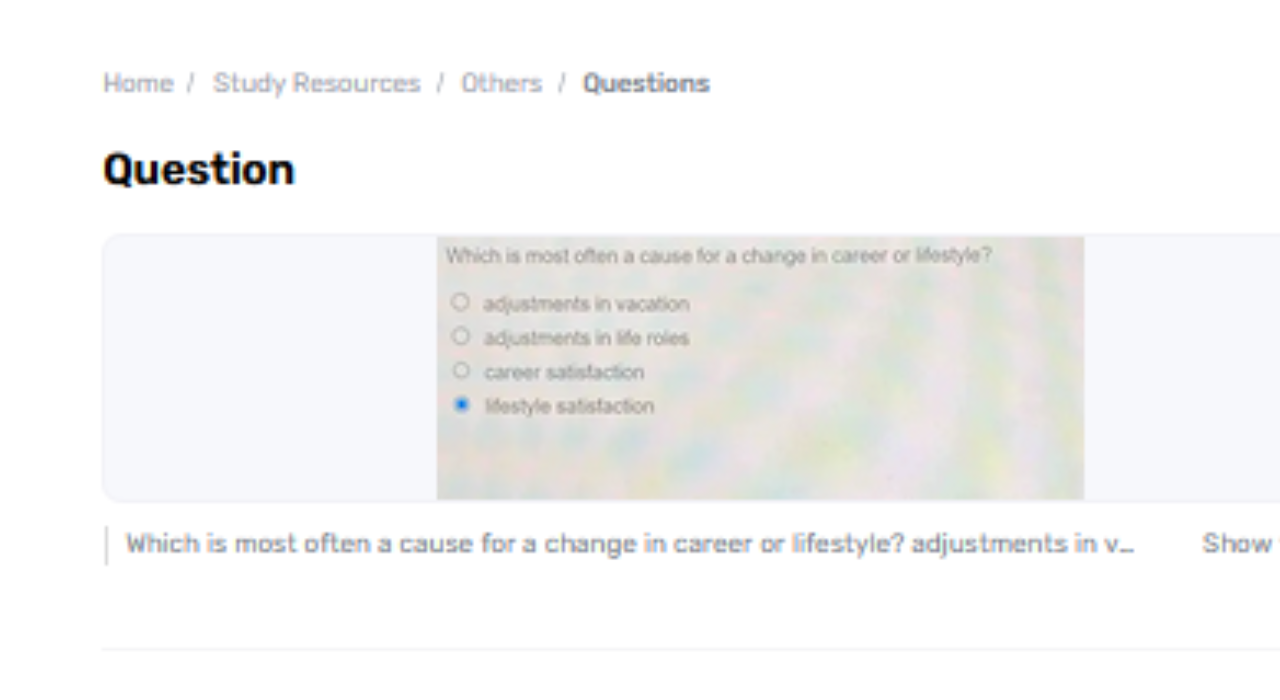Career and way of life changes are noteworthy occasions in a person's life, frequently driven by an assortment of components. These moves can be persuaded by individual wants, proficient aspirations, or outside circumstances. Understanding the foremost common causes behind which is most often a cause for a change in career or lifestyle? these changes can offer experiences into the elements of career and way of life advancement and offer assistance to people exploring their moves more viably. This paper investigates the essential reasons for such changes, counting work disappointment, interest in enthusiasm, work-life adjustment, money-related contemplations, and outside impacts.
Fundamental Heading: Key Drivers Behind Career and Way of Life Changes
Career and way of life changes are frequently driven by key components such as work disappointment, interest in energy, work-life adjustment, monetary needs, and outside impacts. These drivers reflect both individual yearnings and outside circumstances, forming individuals' choices to look for more satisfying and adjusted ways.
Work Dissatisfaction
One of the foremost visit causes of a career alter is work disappointment. Workers who feel unfulfilled, underestimated, or stuck in a repetitive part are likely to look for modern openings that adjust superior to their interface and values.
Work disappointment can stem from different components, including destitute administration, the need for development openings, or a jumble between work duties and individual aptitudes. When people encounter a need for engagement or excitement in their current parts, they may start to investigate elective career ways that offer more noteworthy fulfillment and arrangement with their individual and proficient objectives.
Interest of Enthusiasm
The interest of enthusiasm is another noteworthy inspiration for career and way of life changes. Numerous individuals reach a point where they recognize that their current work or way of life does not reflect their genuine interface or wants.
This realization frequently prompts a move towards careers or ways of life that permit them to seek after their interests. For occasion, somebody with a profound cherish for craftsmanship might choose to take off a corporate work to get to be a craftsman or exhibition proprietor. This move is driven by a want to adjust one's day-by-day exercises with the individual interface and to discover fulfillment in work that resounds on a more profound level.
Work-Life Balance
Achieving a distant better; a much better; a higher; a stronger; an improved">a much better work-life adjustment may be a significant calculate affecting career and way of life changes. As individuals become more mindful of the significance of keeping up a solid harmony between work and individual life, they may seek changes that permit more prominent adaptability and well-being. This might include transitioning to a part-time part, outsourcing, or indeed changing careers to a field that gives more control over one's plan.
Gauth's 3-Step Direct to Doing Homework
1. Plan and Prioritize
Start by investigating all your assignments and due dates. Make a to-do list, prioritizing assignments based on criticalness and significance. Apportion particular times for each subject or assignment to guarantee you address everything proficiently.
2. Focus and Execute
Discover a calm, organized workspace free from diversions. Set a clock for centered work sessions, regularly 25-30 minutes, followed by brief breaks. Utilize this time to work constantly on each task, taking after your arranged plan.
3. Review and Reexamine
After completing your homework, audit your work to guarantee precision and completeness. Make essential corrections and check for any missed subtle elements. In case pertinent, look for criticism from instructors or peers to progress your understanding and execution.

Conclusion
In conclusion, career and way of life changes are frequently driven by a combination of inside wants and outside components. Work disappointment, interest in enthusiasm, work-life adjustment, budgetary contemplations, and outside impacts all contribute to the choice to change one's career or way of life. By understanding these common causes, people can better explore their claim moves and make educated choices that lead to more satisfying and adjusted lives. Each calculation offers a special viewpoint on why individuals look for alter, highlighting the multifaceted nature of career and way of life advancement.


